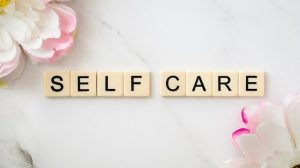Our world is changing, seemingly at the speed of light. It seems inconceivable that anything would eclipse the pain and upheaval caused by the Covid 19 pandemic. And yet, the tragic loss of George Floyd and the international response to centuries of racial inequality have further turned our world upside down.
World events have created massive changes in mere weeks, not only in how we live, but also in how we perceive our communities and country. Much of what we are going through is incredibly painful. There’s a huge sense of loss and longing for the lives we had before the pandemic. And there’s so much heartache, both in lives lost to the coronavirus, but also from centuries of systemic racism, which is so clearly underscored by the tragic murder of George Floyd.
There i s a concept in Judaism, called tikkun olam, which loosely means repairing the world. In the face of the current turmoil rocking our lives, many people have embraced this belief of making things better in their own ways, large and small. The spirit of tikkun olam is reflected in the work of our health care workers, people marching for racial equality, emergency responders, and grocery store workers, to name a few. We see this spirit every day in selfless people who act out of kindness and in the service of others.
s a concept in Judaism, called tikkun olam, which loosely means repairing the world. In the face of the current turmoil rocking our lives, many people have embraced this belief of making things better in their own ways, large and small. The spirit of tikkun olam is reflected in the work of our health care workers, people marching for racial equality, emergency responders, and grocery store workers, to name a few. We see this spirit every day in selfless people who act out of kindness and in the service of others.
Repairing the world and caring for others can be exhausting and demands a certain amount of self-care in order to be sustainable. I understand that self- care may feel selfish when so many people are struggling. However, there’s a difference between selfishness and self-care. Without repairing ourselves, how are we able to repair the world?
Self-care can have many different meanings and manifestations. Here are some thoughts from my personal experience as well as from decades of caring for patients:
-First of all, listen to your body. It sends you what I call love notes in the form of minor discomforts. Feeling drained, achy, or out of it? Listen up—your body is telling you that you need a break. I have found that when you ignore those early signs your body gets louder in telling you to slow down, often in the form of major symptoms or illness.
-Give yourself permission to lighten up. You need to take time off to be able to keep going. You’ll be back another day to care for others, care for the world, and to do your life’s work. This is not selfishness; it’s self-care.
-Let the word “nourishment” be a theme for your self-care. Nourishment is more than just eating well. It’s also what feeds you emotionally and what feeds your soul. Sometimes you just need some time alone, a walk in the woods, a soak in the tub, or to get together with a good friend.
-Know that it’s okay to do nothing, for in doing nothing, you’re actually doing something very important—taking care of yourself.
-If your life is very stressful, do whatever it takes to manage that stress. Meditate, create art, write in a journal, or do some Yoga. Dealing with stress shouldn’t feel like one more thing to do, and only you know what works best for you.
-Get enough sleep. If you’re staying home due to the coronavirus, it may feel like you just go from your daytime pajamas to your nighttime pajamas. However, the time you spend actually sleeping is important. Your body repairs and rejuvenates itself while you’re sleeping. Not getting enough shut-eye can translate into poor immunity and a host of other health issues.
-Move your body in a way that feels good. It gets your blood flowing and stimulates your lymphatic system which removes toxins from your body. Gentle exercise is fine, such as Yoga, Tai Qi, swimming, or walking. More strenuous is okay, too. Just don’t overdo it if you’re feeling run down.
-Be kind to yourself and the people around you. Kindness is easy and it takes less energy than being angry, irritated, or frustrated. Also, being kind feels good.
-Understand that everyone suffers in one way or another. As you help others, remember that you can’t fix everything, but if set out to help in some small way, you have practiced tikkun olam. Also know that suffering is what gives meaning to our lives. Author and psychologist Viktor Frankl has written that the question we should be asking ourselves is not about the meaning of life, but rather about the meaning of suffering. The lessons learned and wisdom acquired from suffering is what shapes who we are and the world we live in.
No doubt, these are difficult times. However, kindness and care towards ourselves and others is the very essence of repairing the world.



